I have lived on a farm or homestead for 32 of my 39 years of life. During most of those years, we tended to large gardens and kept a sizeable flock of poultry.
Even now, I have a flock of 50 or more, and my garden plots seem to multiply every growing season.
Every few years or so, I’ll see an article in a magazine, glamorizing the “chicken-friendly garden.” It will include idyllic photos of small red Bantams plucking beetles from a new squash vine.
There will be talk of how simple it is to skip the middleman and allow the birds to fertilize the garden directly.
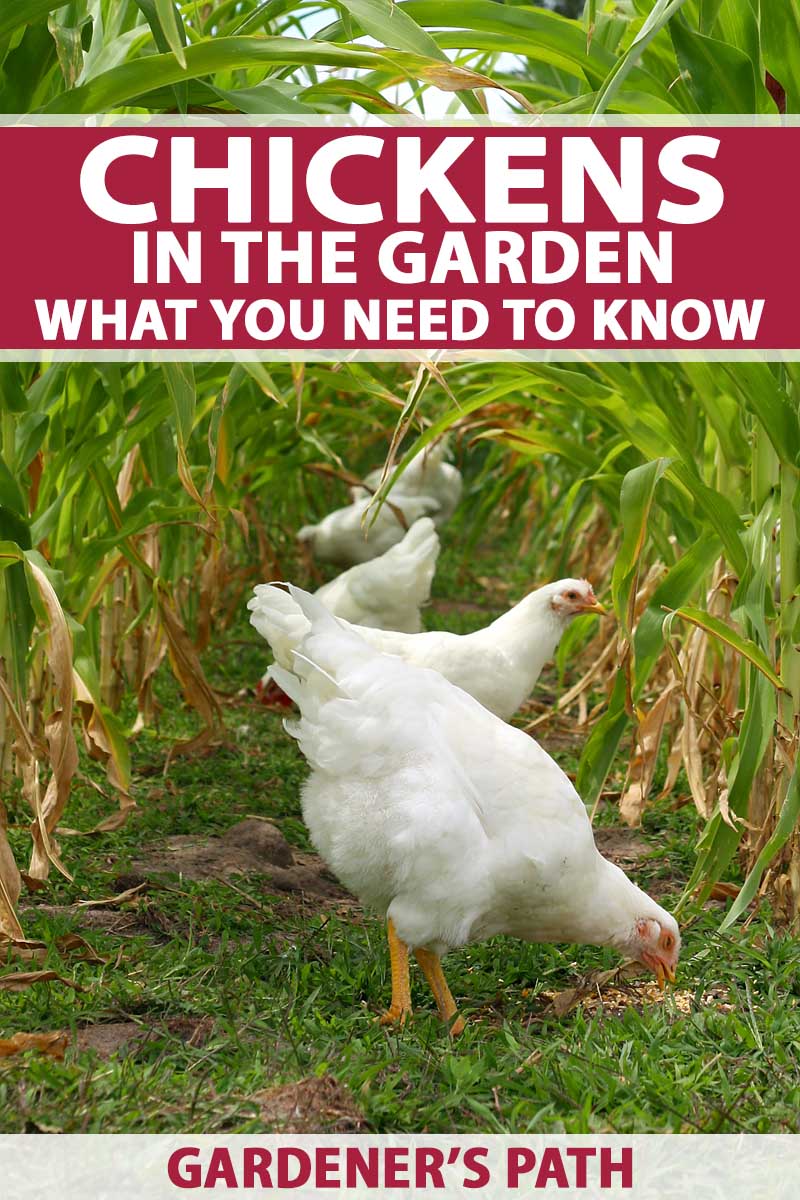
We link to vendors to help you find relevant products. If you buy from one of our links, we may earn a commission.
The truth about why I homestead has forced me to be realistic concerning the facts about chickens and my harvest.
Even the pins on Pinterest make it sound so beautiful.
Surely, I must be doing something wrong in keeping chickens and garden separate?
I love my little hens. They are wonderful and inquisitive creatures, and their eggs make me so happy! My number one goal in gardening, however, is not to offer them a place to hang out. It is to feed my family.
The truth about why I homestead has forced me to be realistic concerning the facts about chickens and my harvest.
While they can coexist, there are some deliberate (and often labor-intensive) steps that you’ll need to take to keep both birds and growers happy! These include setting proper boundaries and implementing safer ways to integrate the worlds of fowl and flora.
Chickens Are Selfish
In my many years of attempting to give the birds small, carefully monitored roles in the garden ecosystem, I have learned a few things.
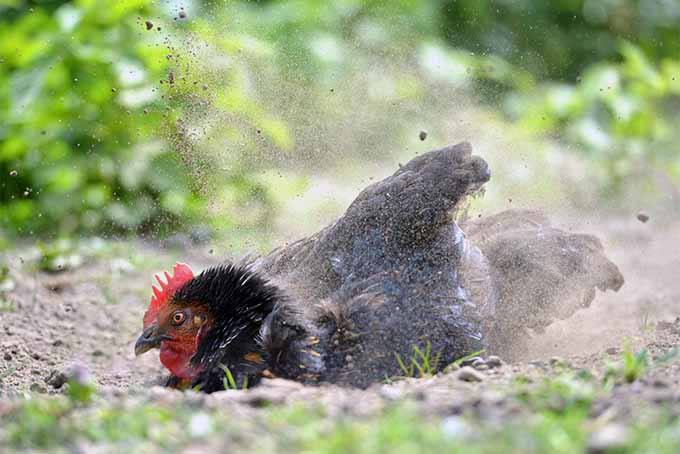
The most important of these is that these creatures want what they want and are very, very destructive to plants and their fruits. Some of their trademark behaviors include:
- Eating freshly sown seeds from the soil.
- Pulling up newly sprouted seedlings.
- Creating a “dust-bath” in the newly tilled soil and smothering any vegetation growing there.
- Stripping certain plants of their leaves and flowers.
- Eating newly set-on fruits.
There is a very short window of time that would be appropriate to allow them to live inside a garden.
That time is after the plants have grown to a size that they won’t be easily mowed down by hungry, broody, or molting hens. But they cannot be in the garden once fruit sets on, either.
This means there are only a few weeks when they would be able to peacefully coexist with your garden plants without much harm.
Birds in Their Time Zones
So, how does a discerning gardener determine when to put hens in the garden?
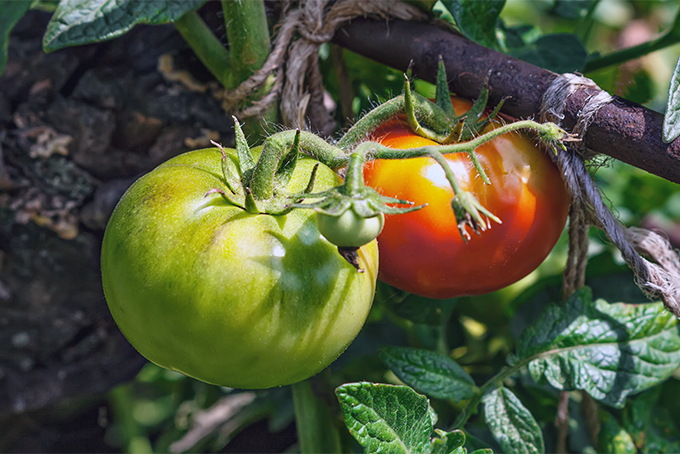
Most garden plants do not all produce at the same time. What may be the perfect occasion to provide a little pest control for the squash is ill-timed for the tiny, tender green tomatoes that would just be setting on late in July.
Therefore, chickens work best when assigned to a portion of a properly zoned garden.
“Time Zone Gardening” (as I’ve dubbed it) puts plants that produce at around the same time together. This makes it easy to block off the peppers and tomatoes from the late-producing winter squash.
Chickens can rotate through the zones at the appropriate times, causing insignificant damage from their overzealous grazing or scratching.
Easy and Affordable Fencing
You can give your garden the best possible chance of survival by dividing your zones with deer or rabbit fencing.
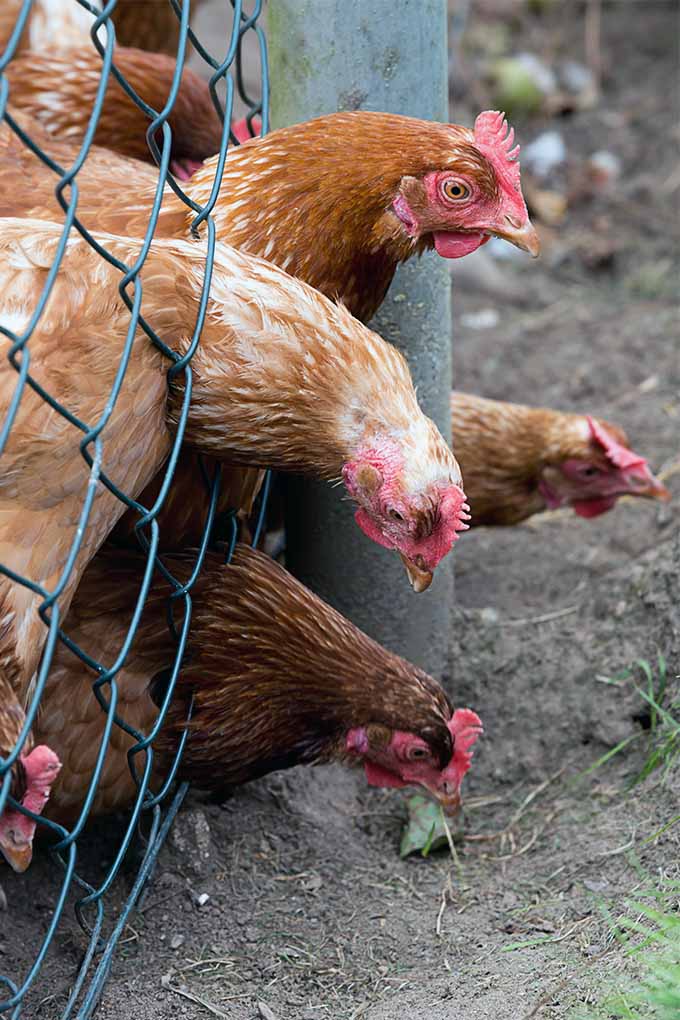
Material that is two feet in height, stretched out and secured with small posts, should keep birds put.
Very few will think of crawling underneath, but you can always use small tent pins or a similar stake-type fastener to secure the fencing to the ground soil.
This brings us to how to keep birds in their place. I’m not going to lie and tell you that chickens do what they are supposed to do. Ever.
I’m not going to lie and tell you that chickens do what they are supposed to do. Ever.
If you allow your birds to go natural (i.e. no wing clipping or other modifications), they can – and will – learn to fly as high as their little wings will take them. This means that even the best-constructed garden fencing can eventually fail.
That is why I have also taken to allowing only the smaller, less experienced birds around my garden.
Tiny bantams who have no idea that there is life outside the netting are ideal for this type of environment. The broody, five-year-old Black Australorp hen with ideas about the world is not.
Choose the right chicken, and you’ll have far fewer bad behaviors to deal with!
Perimeter Duty for Hens
If you are in love with the idea of having your chickens work the garden, and you are beyond frustrated with trying to keep them sorted out, perimeter work may be for you.
Building a chicken run along the outside walls of your garden is better than nothing. Chickens can make quite a difference in keeping grasshopper and slug populations down by only working the outside edges.
I have done this with just three sides of my garden most years. The fourth side is where I like to let my plants “do their thing.”
Overzealous pumpkin vines are redirected to this fourth wall, or I may allow an heirloom cucumber to make its home here. Garden fences are prime real estate for many of my experiments, so I’m not willing to give them all up to the chickens!
Raised Beds, Lowered Chickens
Finally, if you’re looking for an easier way to let poultry have their fun and do a little pest-control work while they’re at it, put them around your raised beds.
Once my greens are fully established, the chickens don’t want much to do with them. They will, however, scurry around the base of the raised beds, reaching up to snag a slug or harmful grub straight out of the dirt.
Again, this is probably best for the better-behaved, smaller hens. If at any point they find the greens to be tasty enough to reach for, they get put back into perimeter duty. This type of gardening only works with very clear boundaries!
Problems to Look For
There will always be exceptions to best practices.
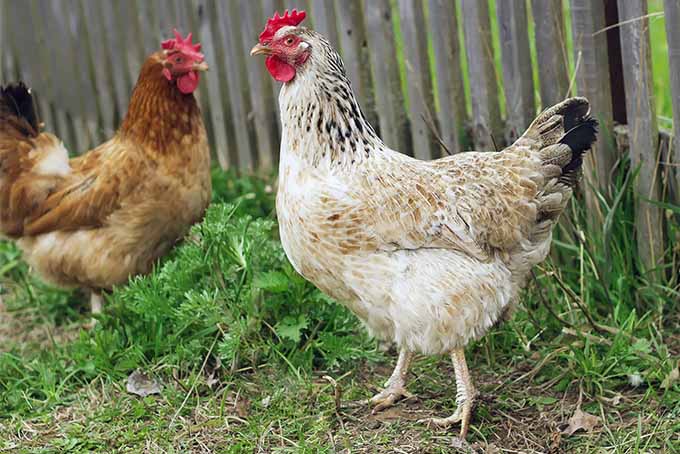
Chickens seem made to stretch your expectations and challenge the typical gardener. That’s why you should be on the lookout for the following troublemakers who would be better off free ranging in the field than inside the fence with your plants:
Broody Hens
These gals will find a place to nest (usually somewhere in the wild mass of overgrown tomatoes) and refuse to leave.
Do your best to keep broody hens near their regular laying boxes. I have had seasons where there were more eggs than eggplants in my garden!
Roosters
If you keep roosters, you know that they have a purpose. But they also cause hens to fight and distract from the job of pest control.
Gardening is an all-girls activity for the chickens on our farm.
Hen and Chick Sets
Unless you want to hear hours and hours of distressed calls between mother hen and baby, leave the little ones out of the garden. They tend to get tripped up and lost in the maze of plants.
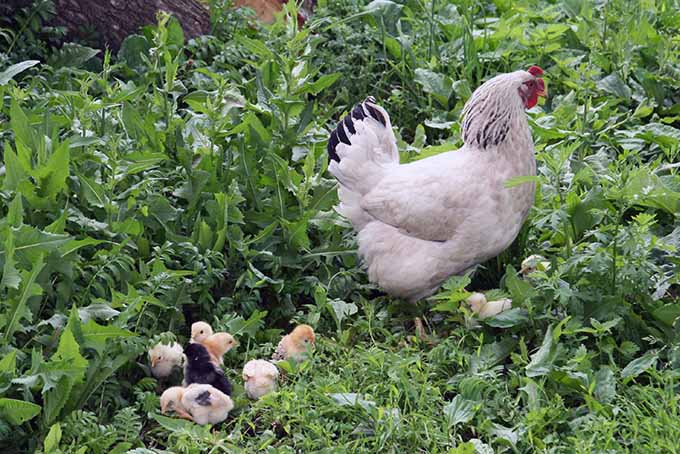
Chicks are better off in a more secure and less overgrown environment.
A Natural Partnership for Your Garden
I have yet to decide if we will deal with the hassle of putting fowl in the gardens this year.
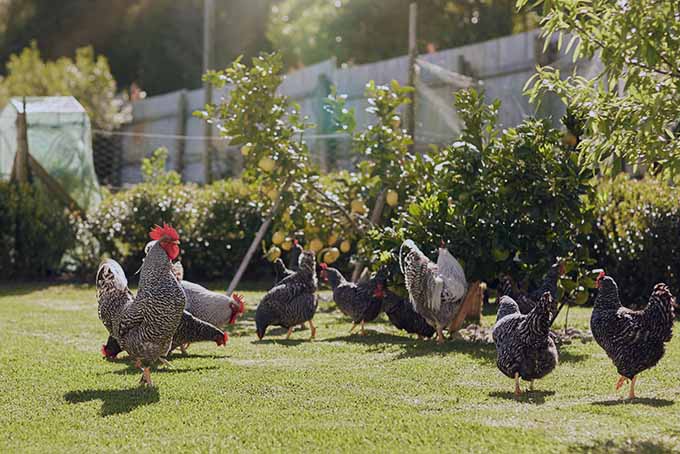
At the very least, it’s easy enough to allow them to free-range in my large watermelon and squash patch in the weeks before the fruit sets on, where there is no fencing or other infrastructure to deal with.
Even if you decide to keep your feathered friends out, there are ways to keep the symbiotic relationship alive – even in a surrogate manner.
Weeds and rotted fruits should get tossed to your hens daily. Chicken manure can be put into compost where it will be turned into a safer, less nitrogen-rich version than when delivered “in person.” Even eggs shells can be ground down into a fine soil additive for good plant root health!
Chickens and the garden are natural partners for a more healthy, efficient system. How you put them together, however, is a very personal choice.
Will you be putting birds inside your garden fence this year? What stories can you share about chicken environments gone wrong? Tell us in the comments! And don’t forget to check out our article on growing greens for healthy and happy chickens.
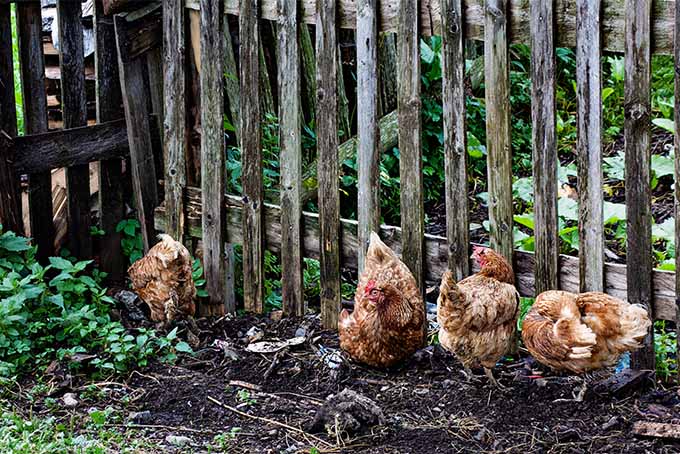
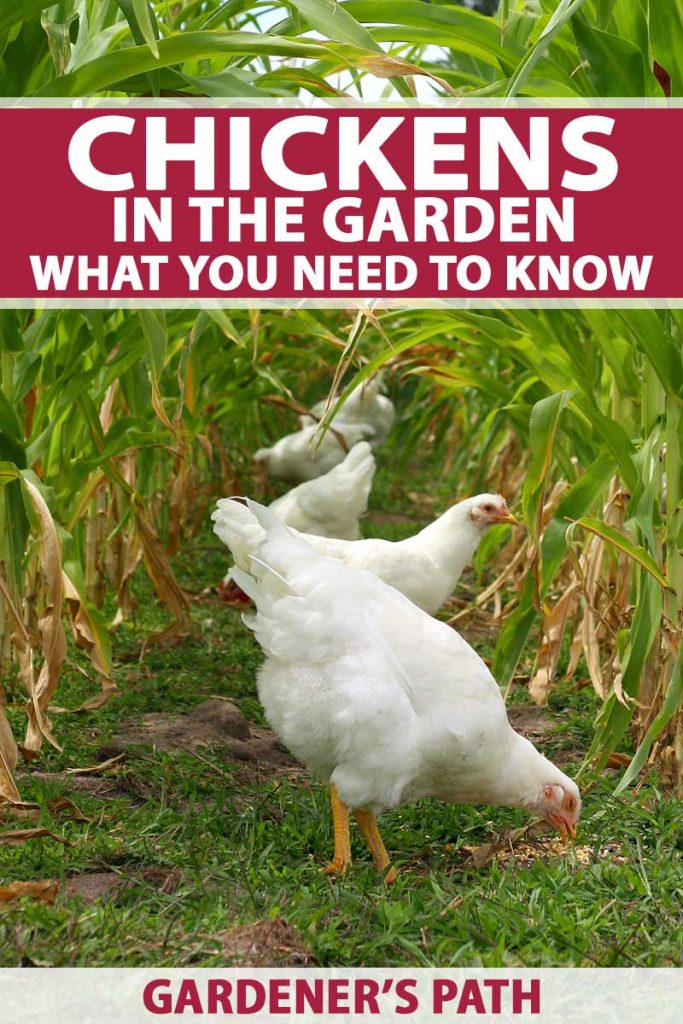
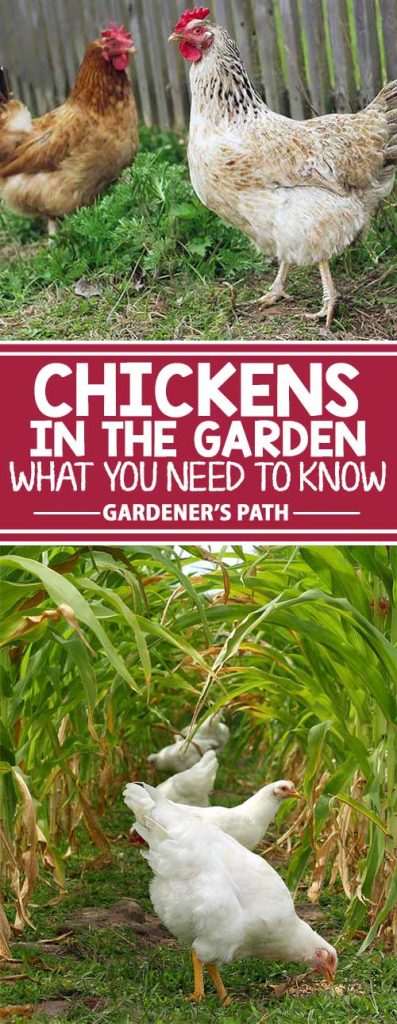
Thanks for this realistic view. I made the mistake of moving my veggie garden from a deer-fenced area (which was admittedly not draining well) into some raised beds near the chicken coop. It’s nice that I can see the veggies from the kitchen window, but what it’s mostly useful for right now is watching the chickens chomping and scratching away in there! I tried putting some low fencing around the perimeter of each box, but the hens just hop right over it. I’ve taken to covering the whole bed, which is a hassle when I need to work in there… Read more »
Thanks for your question, Susan. There are always some tradeoffs when animals and vegetables are sharing space in the garden, wouldn’t you agree? Some say chickens won’t like the feeling of the rocks on their feet so this may deter them, but only a real-world test will provide the proof you need- as I’m sure you know, it’s difficult to stop a determined chicken, to the point where some will hurt themselves to gain access to an enticing food source. Wishing you the best of luck! Please let us know how it goes.
Joanna Gaines built a garden with a chicken run around it. I wasn’t sure if that would be enough to keep the bugs down or not. My free range chickens know how to fly, so putting them in just a fenced area is probably not going to work. That’s why I liked the idea of her chicken run. What do you think about that?
Thanks for your comment, Theresa. A chicken run is an excellent option for giving your birds an opportunity to scratch and forage without tearing up your veggie patch- if you can build one that actually contains them while giving them enough space to roam. Make sure it’s predator-proof, unless you’re able to keep an eye on them at all times while they’re enjoying a little play time. We’d love to see photos if you do try this DIY project- be sure to share them with us on Facebook, and check in with your progress! Thanks for reading.
My family and I just moved into a house where the owner left the chickens for us. They are well behaved and are able to roam the garden. The biggest issue I have is the poop. It’s everywhere. The yard is beautiful and I want to enjoy it but the poop is too much. Should I try to keep them near the back of the garden where the fruit trees are or get a bigger coop so they stay put? I’m a newbie and don’t know what to do.
I read that using a pooper scooper and putting it all in a compost pile is the best option. Good luck
We have the same problem, but my young children and I are all visually impaired so poop scooping isn’t an option. We’ve fenced them into one area for now, but I’m just debating creating a much larger fenced area that we would all use, that I can let the chickens into say every few days. This area would exclude our main entrance, which was their favourite toilet, and most problematic area for us. It would mean wellies in the main garden, but I’d love to rewild it a bit more anyway, so that’s no big deal.
Great tips! You would enjoy my book Gardening with Chickens (Quarto, 2016).
Hi,
Enjoyed the post very much. Does this advice apply to Gardens with chickens in Florida? How wide and high would you make a chicken run?
I have got 3 hens. I made them a run (4×2 meters) and a large garden. The chickens enjoyed the garden very much and want to be outside the run all the time. But 1) it’s not easy to find them 2) it takes a bit of effort to get them in their run. 3) I am worried they can’t travel the long way to their co-op to lay eggs. 4) recently the 30-week-old hen stops laying. The other two 20-week-old ones haven’t laid yet. They joined the older one for nearly 4 weeks. What should I do? Should I… Read more »
Where are you located, Jenny? What type of chickens do you have? Do they have readily available access to water in their run? I’m not a chicken expert, but I understand there are many different reasons why chickens may stop laying eggs, including changes to their diet or lack of certain nutrients (like calcium), lack of water, stress, illness, and changes to their routine. Most hens will start laying around 18 weeks of age, but this isn’t always the case. Also, since you say it’s not easy to find the hens – is it possible that it’s also difficult to… Read more »
Some don’t lay til 6 months. Are the older girls molting? It’s been 5 months since your post Jenny, how are the girls doing now? If they can find their way to the garden and at first they learned their nesting box at their cool they should want to continue laying in there. If the younger ones saw the older laying in the best box they too will do so as long as you keep the door open Chickens know when sunset is approaching and will go get up in their roosts before dark. Unless you never had them trained… Read more »
I was wondering if I need to supply a portable laying box for my hens while they are in the garden during the day?
Hi Joyce, great question! It will depend on what time you put them outside. Most eggs are laid before 10am, so if it’s after that, you should be fine without a portable laying box. Ideally, you want the hens to lay in the coop before they go out into the garden. Also, what age are your hens? If they are used to laying regularly in the coop, then you could leave the door open for them so that they can get back in. But young hens may become confused. So if they are young, you should start by training the… Read more »
I keep them in the garden during winter season (when nothing’s growing in the garden), let them poop everywhere on the mulch (till-free gardening). Then I move them into the chicken run in the spring where they’ll live all summer, so they won’t eat up the garden. I cover the garden with netting so they can’t fly out and predators can’t fly in.
It sounds like you have very happy hens and that’s a great way to fertilize the garden!
I started letting my pullets out into the yard but I am worried that they are not going back into the run to get their chick food. Should I also place food in the yard for them?
Thank you so much for sharing your knowledge and experience with us! This article answered so many questions for me!